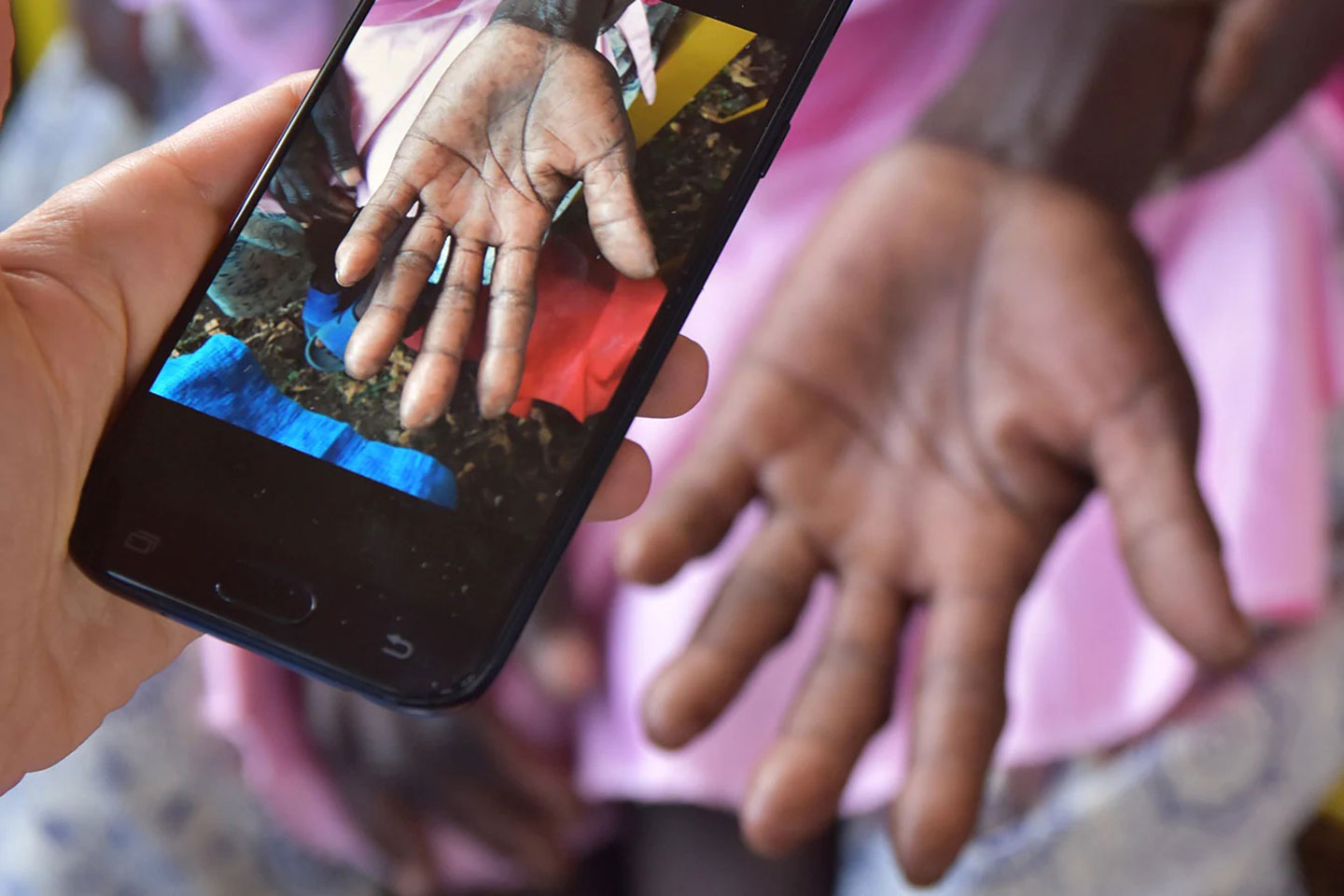Here’s how a specially-designed Vaccine Land Cruiser could help transform immunisation
Toyota’s Vaccine Land Cruiser has been helping ferry vaccines to remote areas of five African countries. Gavi’s Yoshinobu Nagamine and Mwenge Mwanamwenge talk us through the results.
- 29 September 2023
- 4 min read
- by Yoshinobu Nagamine , Mwenge Mwanamwenge
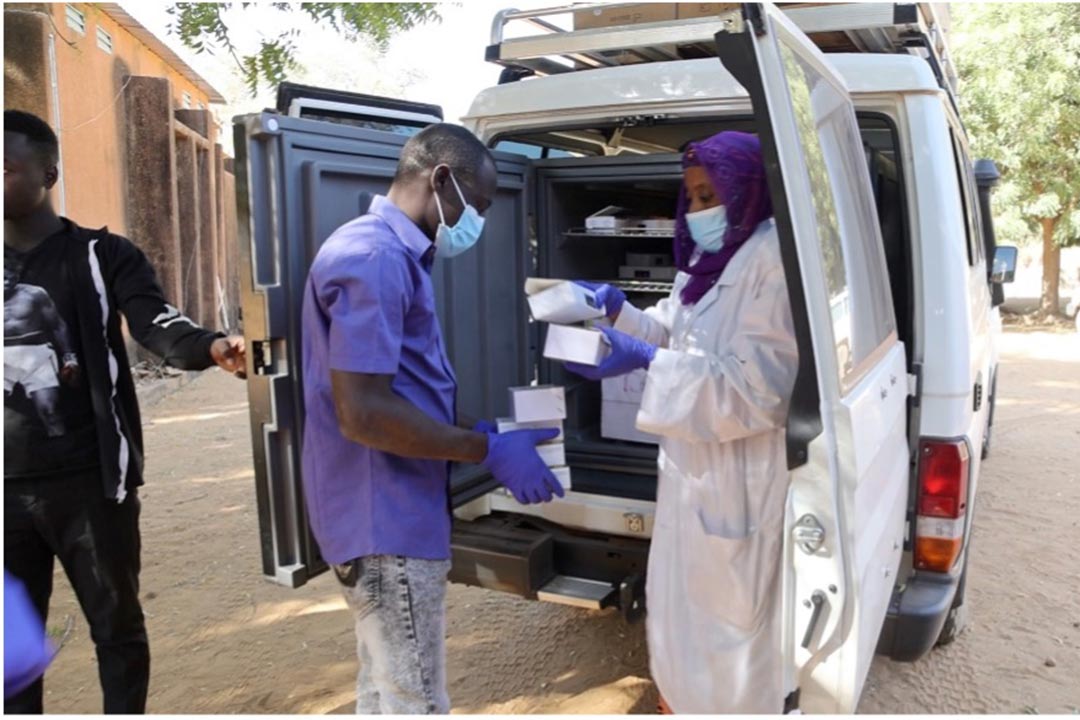
Often our minds race towards cutting-edge technology when thinking about innovation. However, true value lies in solutions that benefit end users, irrespective of the technology behind them. A good example is Toyota Tsusho, a trading arm of Toyota Motor Group, which has seamlessly integrated a refrigerator from B-medical systems into the familiar Toyota Land Cruiser 78-series.
The goal was to address the challenge of inconsistent availability of high-quality vaccines and limited reach of vaccine supply chains in underserved populations in order to achieve the vision of ensuring "delivery of live-saving vaccines to every person when needed, no matter where they are."
The vehicle was prequalified by WHO in 2022 and has a 396-litre refrigerator that can hold up to 30,000 doses of vaccines. With two external batteries, it maintains the correct temperature control as per WHO recommendations, even during extended stops of up to 16 hours.
“The Land Cruiser has facilitated the work in health centers and villages where we do the mobile vaccination…we consider it a great moment for us.”
– Natalia Daniel, Primary Healthcare Supervisor, South Sudan
To fully understand its potential to access hard-to-reach areas and reach zero-dose children, we conducted field-tests in five Gavi countries: Burkina Faso, Senegal, Niger, Kenya and South Sudan. The countries were free to decide how best to tailor the use of the vehicles to their unique needs.
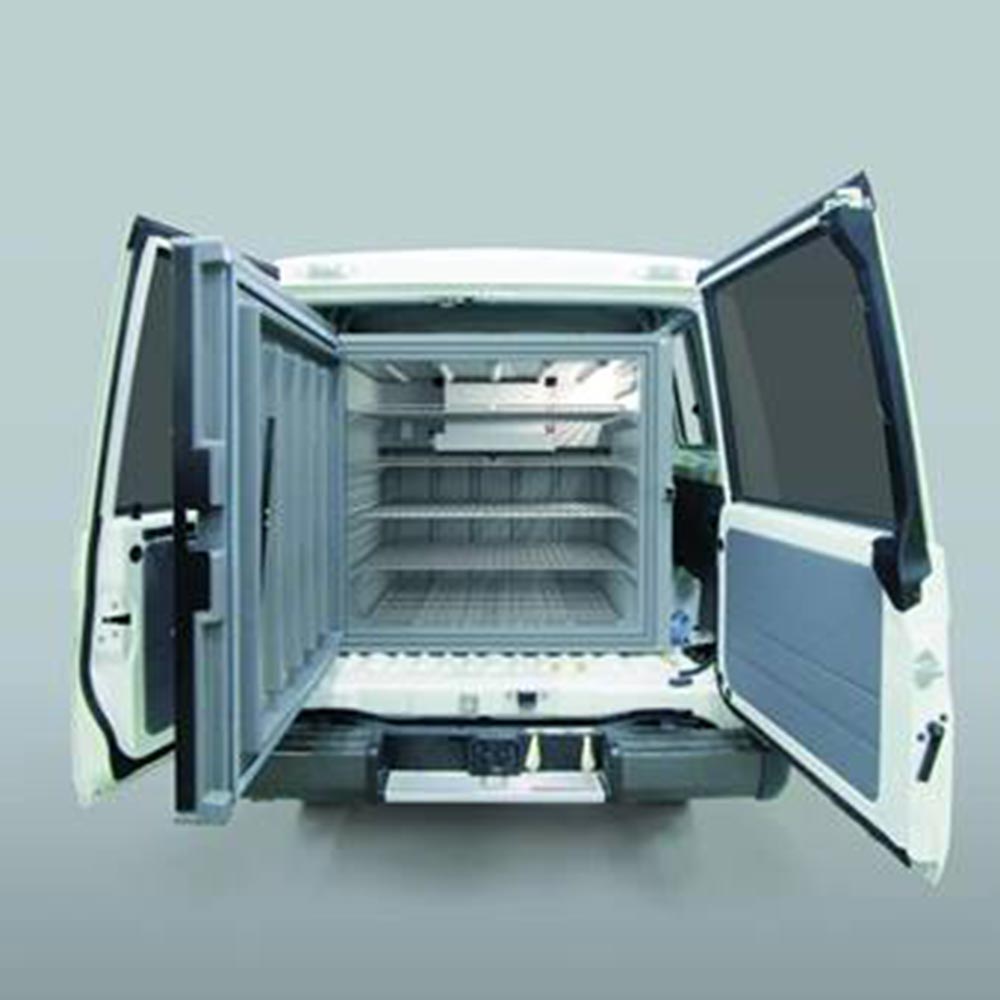
The results spoke for themselves. The Vaccine Land Cruiser reached health facilities and areas that were once inaccessible to conventional trucks, hindered by their size and limited cold chain capabilities. In Burkina Faso's Lena district, for example, vaccines were previously retrieved from district stores using a pull system, with logistics staff using motorbikes for transportation.
This area was notoriously known as "l'axe de mal" due to its impassable roads. However, after the deployment of the Vaccine Land Cruiser, accessing the region became possible and health facilities now receive regular monthly vaccine supplies. This not only enhanced the efficiency of the process but also allowed health staff to dedicate more time to service delivery.
Comparing the operational cost of transporting a vial between the conventional vehicle and the Vaccine Land Cruiser revealed significant efficiency gains in all countries.
Niger: Average Cost per Dose of Transporting Vaccines (Dosso Region)
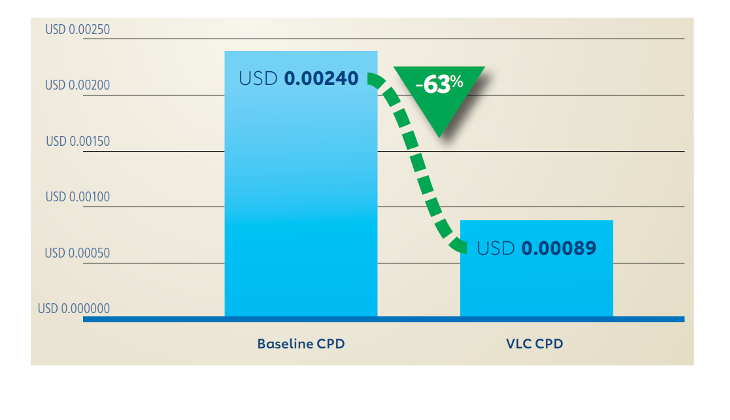
Niger, for example, experienced an impressive 63% reduction in operational costs, achieved through fuel efficiency and optimised route planning. Previously, the conventional vehicle had to follow a hub-and-spoke approach, driving to the health post and returning via the same route. However, the Vaccine Land Cruiser opened up new possibilities by connecting multiple health posts in one outing, serving two districts or more instead of one.
Moreover, the previous setup required two vehicles for vaccines and dry commodities like syringes and personal protective equipment (PPE). However, the Vaccine Land Cruiser can now transport both types of cargo, eliminating the need for a second vehicle and streamlining the entire transportation process.
Niger: Route Optimisation using the Vaccine Land Cruiser for a Typical Vaccine Distribution Month
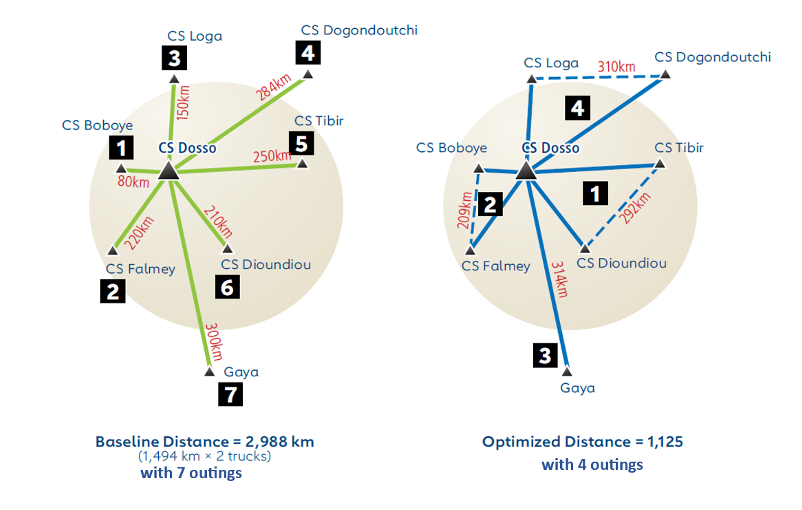
The safe transportation of vaccines is of utmost importance. About 2.4 million vaccine vials were safely transported within the recommended temperatures across all countries involved in the study. The team observation was that when driven between short distances, the refrigerator unit had to be opened too frequently, meaning the refrigerator did not have sufficient recovery time to regain its optimal temperature. A solution was proposed to address this: skipping every second health post for discharge and covering the remaining posts on the return journey, thereby increasing the distance and reducing temperature fluctuations.
Have you read?
Beyond being a cost-effective means of transportation, the Vaccine Land Cruiser has transformative potential for the design of the supply chain system. The vehicle can help with real-time logistics and stock management, by tailoring the delivery of vaccines with the correct quantity at the right time, utilising GPS tracking of the vehicle and remote temperature monitoring.
Another opportunity is the bundling of vaccine delivery with other essential medical goods like insulin, biologics, diagnostic reagents, blood products or oxytocin. Multiple medical goods can be transported together, creating a comprehensive and integrated approach to healthcare delivery.
Additionally, the vehicle can be used for reverse logistics, enabling the collection of used vials, syringes and personal protective equipment, promoting responsible disposal practices.
The most important takeaway from the exercise was that the vehicle provided different solutions to different use cases as countries made choices based on the trade-off between access and efficiency. Some countries focused on covering the last leg of hard-to-reach health facilities, while others emphasized transporting large volumes between regional and district stores. Gavi's value will lie in consolidating and sharing these learnings within a Community of Practice.
Innovation doesn't have to be complex; however, it must stem from a firm belief that it adds value to the end user.
The external evaluation report was drafted by the independent consultant Othman Abubakar and the project was coordinated by Hugo Agostinho. We are particularly grateful to the respective Ministry of Health staff and Gavi Senior Country managers for their support.
